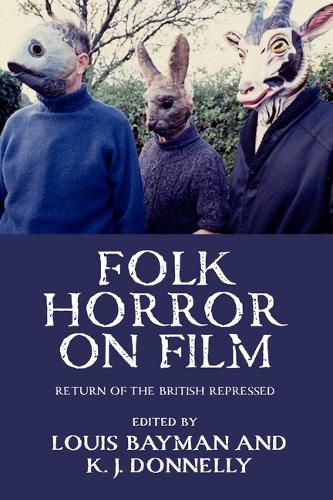Readings Newsletter
Become a Readings Member to make your shopping experience even easier.
Sign in or sign up for free!
You’re not far away from qualifying for FREE standard shipping within Australia
You’ve qualified for FREE standard shipping within Australia
The cart is loading…






What is folk horror and how culturally significant is it? This collection is the first study to address these questions while considering the special importance of British cinema to the genre's development.
The book presents political and aesthetic analyses of folk horror's uncanny landscapes and frightful folk. It places canonical films like Witchfinder General (1968), The Blood on Satan's Claw (1971) and The Wicker Man (1973) in a new light and expands the canon to include films like the sci-fi horror Doomwatch (197072) and the horror documentary Requiem for a Village (1975) alongside filmmakers Ken Russell and Ben Wheatley.
A series of engrossing chapters by established scholars and new writers argue for the uniqueness of folk horror from perspectives that include the fragmented national history of pagan heresies and Celtic cultures, of peasant lifestyles, folkloric rediscoveries and postcolonial decline.
$9.00 standard shipping within Australia
FREE standard shipping within Australia for orders over $100.00
Express & International shipping calculated at checkout
What is folk horror and how culturally significant is it? This collection is the first study to address these questions while considering the special importance of British cinema to the genre's development.
The book presents political and aesthetic analyses of folk horror's uncanny landscapes and frightful folk. It places canonical films like Witchfinder General (1968), The Blood on Satan's Claw (1971) and The Wicker Man (1973) in a new light and expands the canon to include films like the sci-fi horror Doomwatch (197072) and the horror documentary Requiem for a Village (1975) alongside filmmakers Ken Russell and Ben Wheatley.
A series of engrossing chapters by established scholars and new writers argue for the uniqueness of folk horror from perspectives that include the fragmented national history of pagan heresies and Celtic cultures, of peasant lifestyles, folkloric rediscoveries and postcolonial decline.